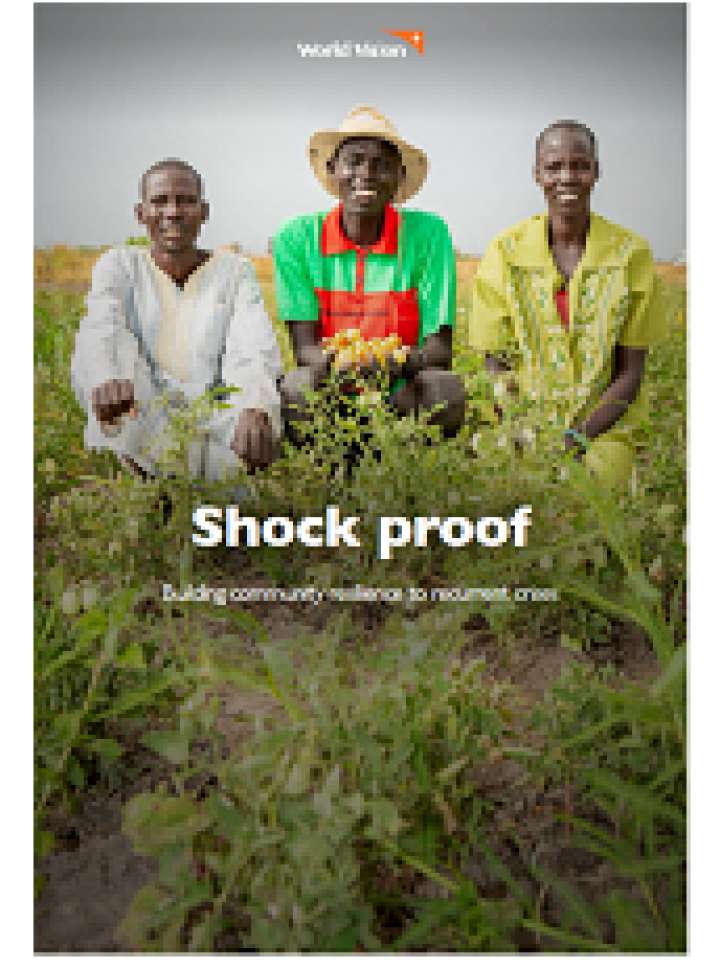Shock proof: Building community resilience to recurrent crises
This analysis explores the impact of World Vision’s long-term, resilience-focused programs in situations of recurrent or protracted crises – contexts where World Vision has sought to bridge the humanitarian-development nexus. This paper explores World Vision’s work in three contexts highly dependent on humanitarian assistance and where communities face recurrent crises – Somalia, South Sudan and Afghanistan.
• In Somalia, World Vision leads the Somalia Resilience a consortium of seven organisations (Action Contre Le Faim, ADRA, CARE, COOPI, Danish Refugee Council and Oxfam).
• In South Sudan, World Vision has had three recent projects focused on building resilience and food security: FEED – a partnership between the Government of Canada, World Vision, Oxfam and CARE; a three-year project supporting integrated food security and livelihoods; and an EU/EC funded partnership in collaboration with government and THESO, a local South Sudan organisation.
• In Afghanistan, World Vision has been a partner to the Australian Afghanistan Community Resilience Scheme, a six-year project with ActionAid, Aga Khan Foundation and Oxfam, funded by the Australian Government.
World Vision is a multi-mandated organisation which has had a long-term presence in many crisis affected contexts around the world. Community resilience is improving through our longer-term approaches to supporting communities affected by recurrent crises. This paper explores these stories of resilience building in Somalia, South Sudan and Afghanistan, and identifies some of the key factors that have enabled better food security and resilience outcomes for populations facing recurrent crises.
Explore further
